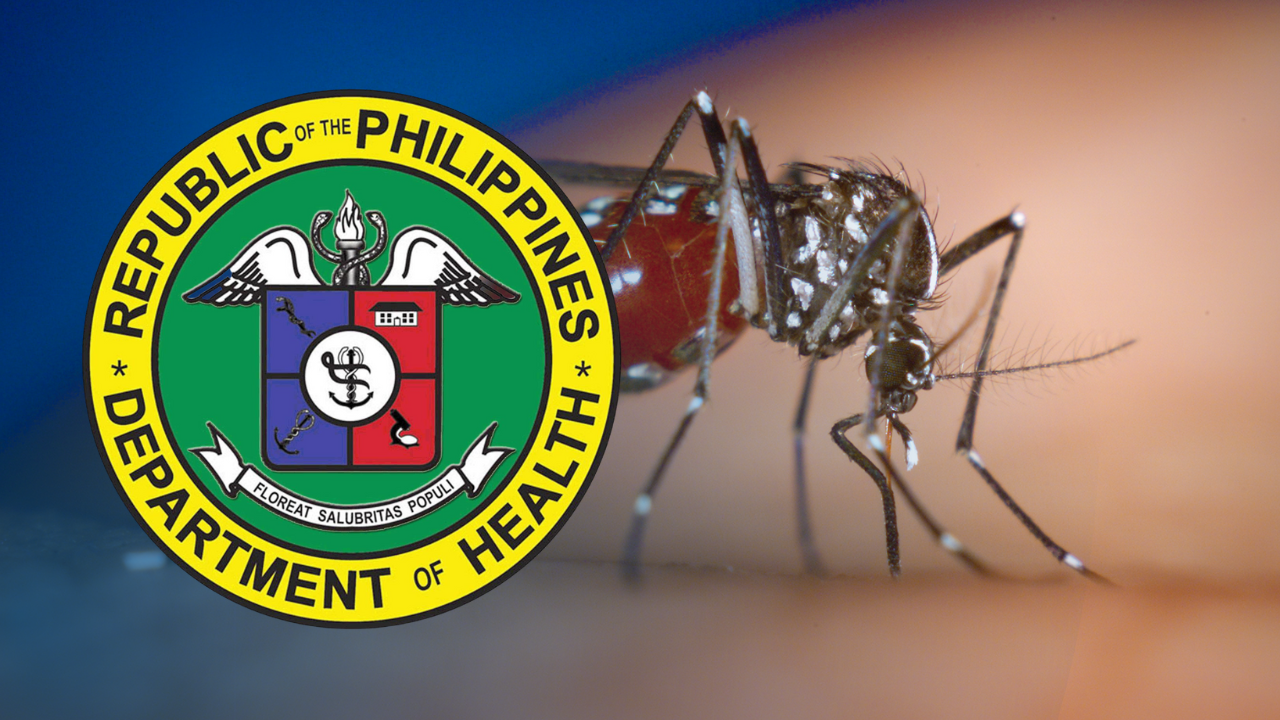DOH records a decrease in dengue cases nationwide in May

FILE PHOTO
MANILA, Philippines — The Department of Health (DOH) has recorded fewer dengue cases from May 12 to 25 compared to the preceding weeks.
In a statement on Tuesday, the DOH said that only 3,992 dengue cases were logged from May 12 to 25, which is a decrease from the 5,359 cases recorded from April 28 to May 11, and the 5,212 cases recorded from April 14 to April 27.
READ: DOH: Dengue cases rising in Cordillera
Meanwhile, a total of 67,874 dengue cases and 189 deaths were recorded from January 1 to May 25.
Despite this, the DOH emphasized that the public must not become complacent in protecting themselves against the virus.
Article continues after this advertisement“The Department of Health (DOH) continues to observe a plateau in the epidemic curve of dengue cases in the country, but warns and advises not to be complacent. The end of El Niño, along with the onset of the rainy season brings with it more water that can serve as mosquito breeding grounds. Kill mosquitoes to keep dengue down,” the agency said.
Article continues after this advertisementIt also enumerated the most common symptoms of dengue, such as high fever (40 °C), severe headache, muscle and joint pains, nausea, and rashes.
Other signs include pain behind the eyes, vomiting, and swollen glands.
DOH noted that symptoms begin to appear four to 10 days after exposure to a mosquito bite and can last for two days to one week.
Most patients get better in one to two weeks, however, the DOH said some patients get severe dengue which can lead to death.
READ: DOH: Guard against dengue as rains come
Symptoms of severe dengue include severe abdominal pain, persistent vomiting, rapid breathing, bleeding gums and nose, fatigue, restlessness, blood in vomit or stool, intense thirst, pale and cold skin, and feeling weak, which often manifest after the high fever has gone.
The health department also noted that there is no specific treatment for dengue itself, and only its symptoms are treated.
“The solution is simple to say but needs community effort to do: kill mosquitoes so that the dengue they bring will not kill you. The rains may have started but we can still search and destroy mosquito breeding sites – wherever water can accumulate and stay still,” said Health Secretary Teodoro Herbosa, as quoted in a statement.
The DOH advised the public to use self-protection measures and seek early consultation for any symptoms.
“Dengue is seasonal. We may have low case counts now, but if we relax, they will go up more than we want. Keep killing mosquitoes and stop them from biting you and your loved ones. Let’s keep Dengue down!” Herbosa said.